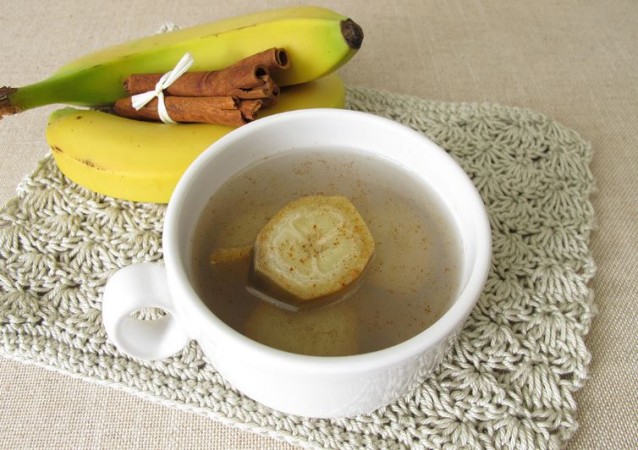
Uric acid is a natural byproduct of the body's metabolism, formed when the body breaks down purines found in certain foods and tissues. While it is normal for the body to produce uric acid, excessive levels can lead to various health issues, including gout, kidney stones, and joint inflammation. Therefore, it becomes essential to manage and control uric acid levels effectively.
1: Causes and Effects of Elevated Uric Acid Levels
a. Dietary Factors: Consumption of purine-rich foods such as red meat, organ meats, seafood, and alcohol can significantly contribute to elevated uric acid levels in the body. These foods contain high levels of purines, which are metabolized into uric acid.
b. Medical Conditions: Certain medical conditions like high blood pressure, diabetes, kidney disease, and metabolic disorders can also lead to increased uric acid production or decreased excretion, resulting in elevated uric acid levels.
c. Health Implications: Elevated uric acid levels can have various detrimental effects on health. One of the most common consequences is gout, a form of arthritis characterized by sudden and severe joint pain, swelling, and redness. Additionally, high uric acid levels are associated with an increased risk of kidney stones, kidney disease, and cardiovascular disease.
2: Traditional Treatment Approaches for Managing Uric Acid Levels
a. Medications: The primary treatment for managing uric acid levels involves the use of medications such as allopurinol, febuxostat, and probenecid. These medications work by either reducing the production of uric acid or increasing its excretion from the body.
b. Lifestyle Modifications: Adopting a healthy lifestyle can also help lower uric acid levels. This includes maintaining a balanced diet low in purine-rich foods, staying hydrated, avoiding excessive alcohol consumption, and engaging in regular physical activity.
c. Dietary Changes: Following a low-purine diet can be beneficial for individuals with elevated uric acid levels. This involves limiting the intake of purine-rich foods and focusing on consuming more fruits, vegetables, whole grains, and lean proteins.
3: Banana Peel Tea as a Natural Remedy for Controlling Uric Acid Levels
a. Overview of Banana Peel Tea: Banana peel tea is gaining popularity as a natural remedy for managing uric acid levels. The tea is made by boiling banana peels in water and then straining the liquid to create a flavorful and nutritious beverage.
b. Nutritional Composition of Banana Peels: Banana peels are rich in essential nutrients, including potassium, magnesium, dietary fiber, vitamin C, and antioxidants. These nutrients not only contribute to overall health but also play a role in regulating uric acid levels in the body.
c. Mechanism of Action: The beneficial effects of banana peel tea on uric acid levels can be attributed to its unique nutritional composition. Components such as flavonoids, particularly catechins and epicatechins, have been shown to possess anti-inflammatory and antioxidant properties, which may help reduce uric acid levels and alleviate symptoms of gout.
4: Scientific Evidence Supporting the Efficacy of Banana Peel Tea in Uric Acid Control
a. Research Studies: Several studies have investigated the potential health benefits of banana peels, including their effects on uric acid metabolism. These studies have demonstrated that banana peel extracts exhibit antioxidant and anti-inflammatory properties, which may help mitigate the inflammatory response associated with elevated uric acid levels.
b. Clinical Trials: While there is limited clinical evidence specifically examining the effects of banana peel tea on uric acid levels in humans, preliminary findings suggest that incorporating banana peels into the diet may have a positive impact on overall health and metabolic function.
c. Animal Studies: Animal studies have provided further insights into the potential mechanisms underlying the beneficial effects of banana peel consumption on uric acid metabolism. These studies have shown that supplementation with banana peel extracts can reduce serum uric acid levels and improve kidney function in animal models of hyperuricemia.
5: Practical Considerations for Incorporating Banana Peel Tea into a Uric Acid Management Plan
a. Preparation and Consumption: Making banana peel tea is simple and can be done at home using ripe banana peels and water. The peels are thoroughly washed, cut into small pieces, boiled in water, and then strained to create a flavorful tea. The tea can be consumed warm or cold and may be sweetened with honey or lemon for added taste.
b. Frequency and Dosage: While there are no strict guidelines for the frequency and dosage of banana peel tea consumption, it is generally recommended to start with small amounts and gradually increase as tolerated. Drinking one to two cups of banana peel tea per day may provide sufficient benefits for managing uric acid levels.
c. Potential Side Effects: While banana peel tea is considered safe for most individuals, some people may experience gastrointestinal discomfort or allergic reactions. It is essential to monitor for any adverse effects and discontinue use if symptoms persist or worsen.
In conclusion, managing uric acid levels is crucial for preventing and managing various health conditions, including gout and kidney disease. While traditional treatment approaches typically involve medication and lifestyle modifications, natural remedies like banana peel tea offer a promising alternative for controlling uric acid levels. With its rich nutritional composition and potential health benefits, banana peel tea represents a simple yet effective addition to a comprehensive uric acid management plan. Further research is warranted to fully elucidate the therapeutic effects of banana peel tea and its role in promoting overall health and well-being.
Budget 2024 Puts Focus on Women's Empowerment: FM Highlights Loans and Healthcare Coverage
How Many Almonds Should You Eat in a Day? Expert Opinions Revealed
Consuming Bread made from Alternative Flours Helps Manage Blood Sugar in Diabetic Patients